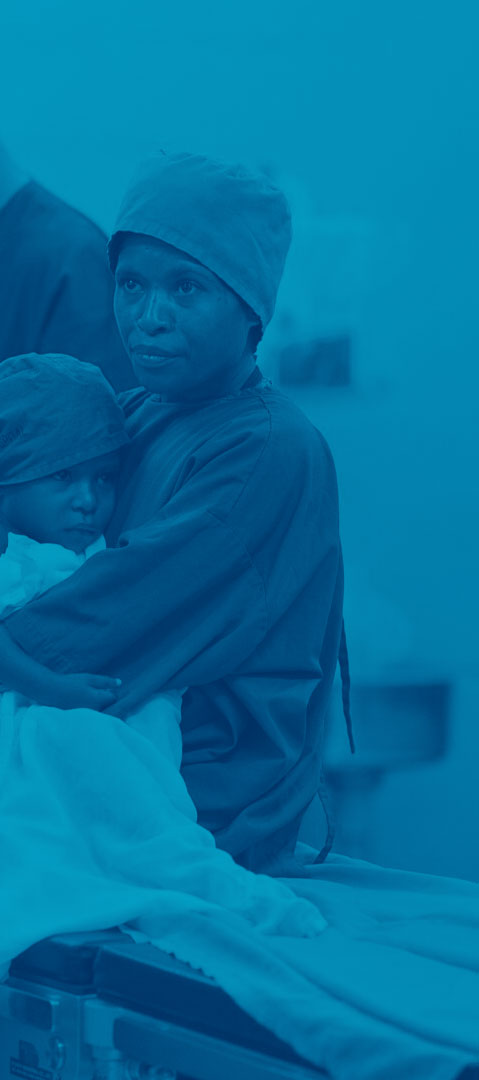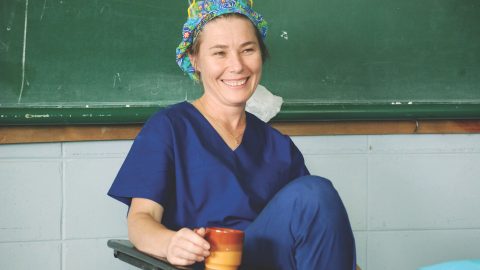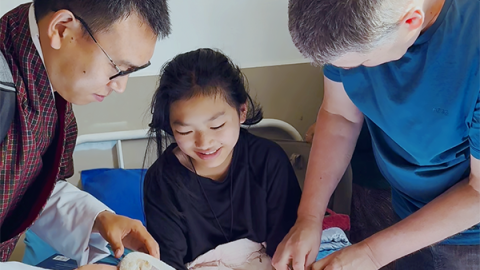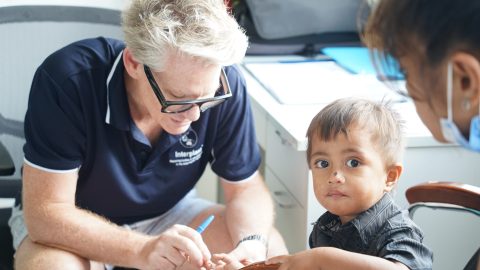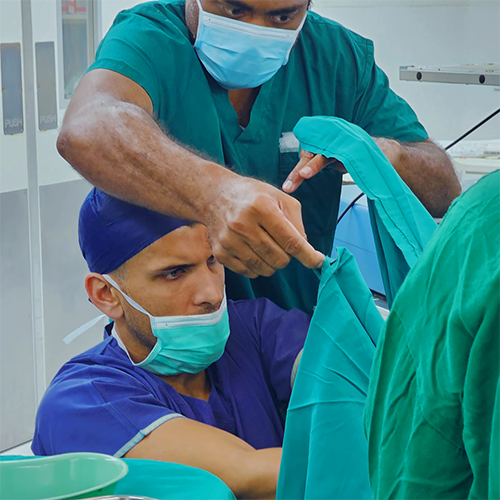
As Fiji’s population approaches 1 million people, its health system must be ready to meet demand. By investing in the growth of Fiji National University, they have cultivated a generation of capable local surgeons and trainees. Over the years, Interplast has worked closely with graduates of the Master of Surgery Degree (MMED) to equip them with additional skills and provide pathways into plastic and reconstructive specialisation.
At the end of April, we saw the fruit of this long-standing relationship.
A small volunteer team returned to Colonial War Memorial Hospital (CWMH) in Suva to build on the existing knowledge of local surgeons, anaesthetists, and nurses. Part of this training included supporting two surgical trainees and their broader team to plan and perform complex plastic and reconstructive procedures.
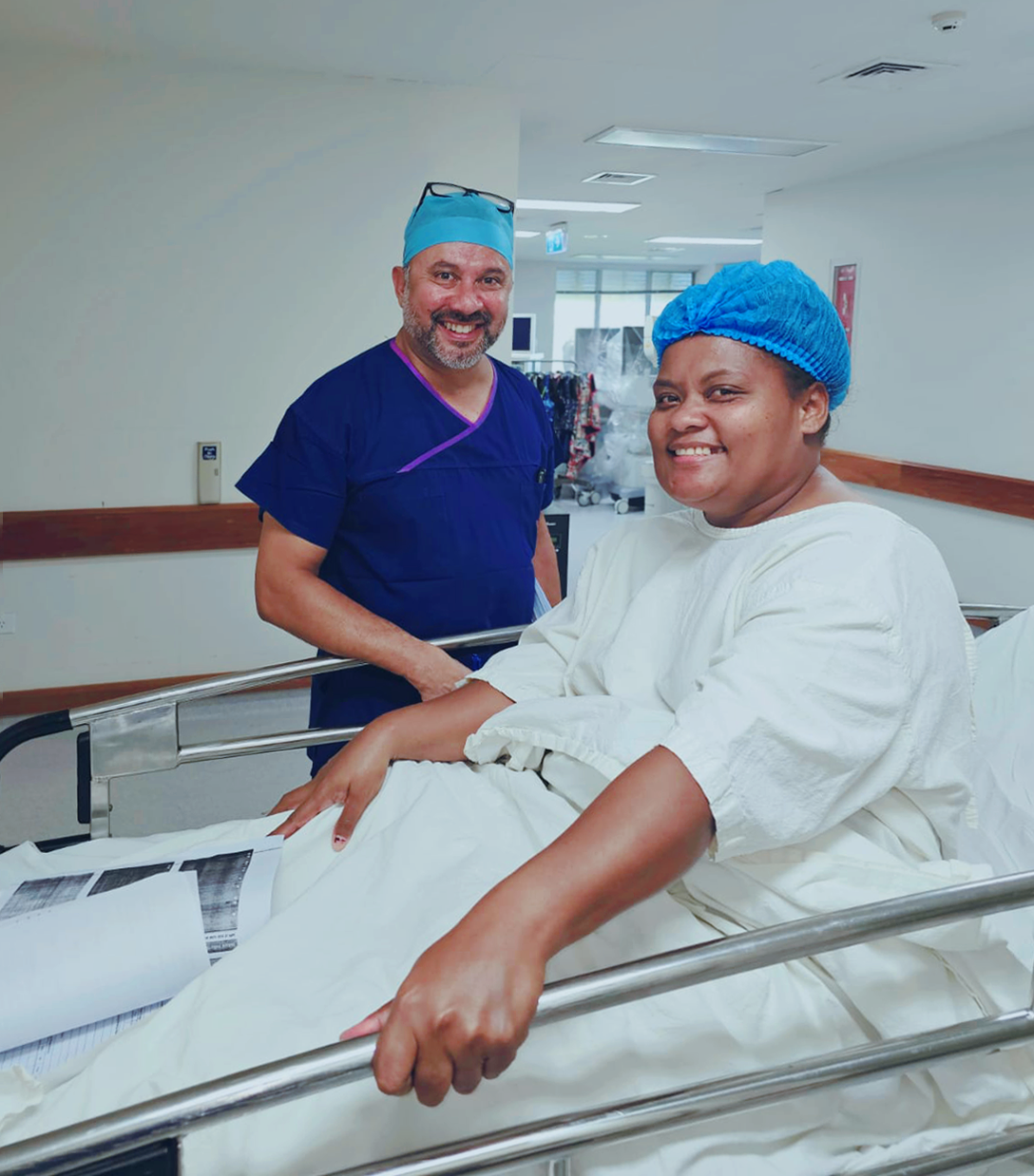
Interplast volunteer and nurse Denis checks in with Merewalesi before their surgery.
Meet the next generation of surgeons
Our recent program was coordinated in collaboration with the local Head of Surgery, Dr Semesa Matanaicake, who we first met as a junior doctor and supported on his journey to become a plastic surgeon. Dr Semesa is now the mentor to new surgeons pursuing training in plastic and reconstructive surgery, including Dr Scott Buadromo and Dr Ravneil Singh.
“My involvement in plastics is mostly due to my mentor, Dr Semesa, who, early in my training, had just returned from his plastics training attachment in Hobart, which was supported through Interplast. I saw the potential of what greater education and more training will allow people to have. They come back with a lot more to offer the country than what they’ve already been practicing.” Dr Scott Buadromo, told us last year.
Dr Scott Buadromo and Dr Ravneil Singh are past and present recipients of Interplast Scholarships, have worked with our teams to plan and deliver programs, and participated in larger multidisciplinary training courses. Both have attended conferences in Australia and New Zealand through their scholarships. These opportunities created space for the surgeons to develop regional networks, participate in workshops and present to international cohorts.
We are excited to continue supporting them on their pathways to becoming Consultant Plastic Surgeons.
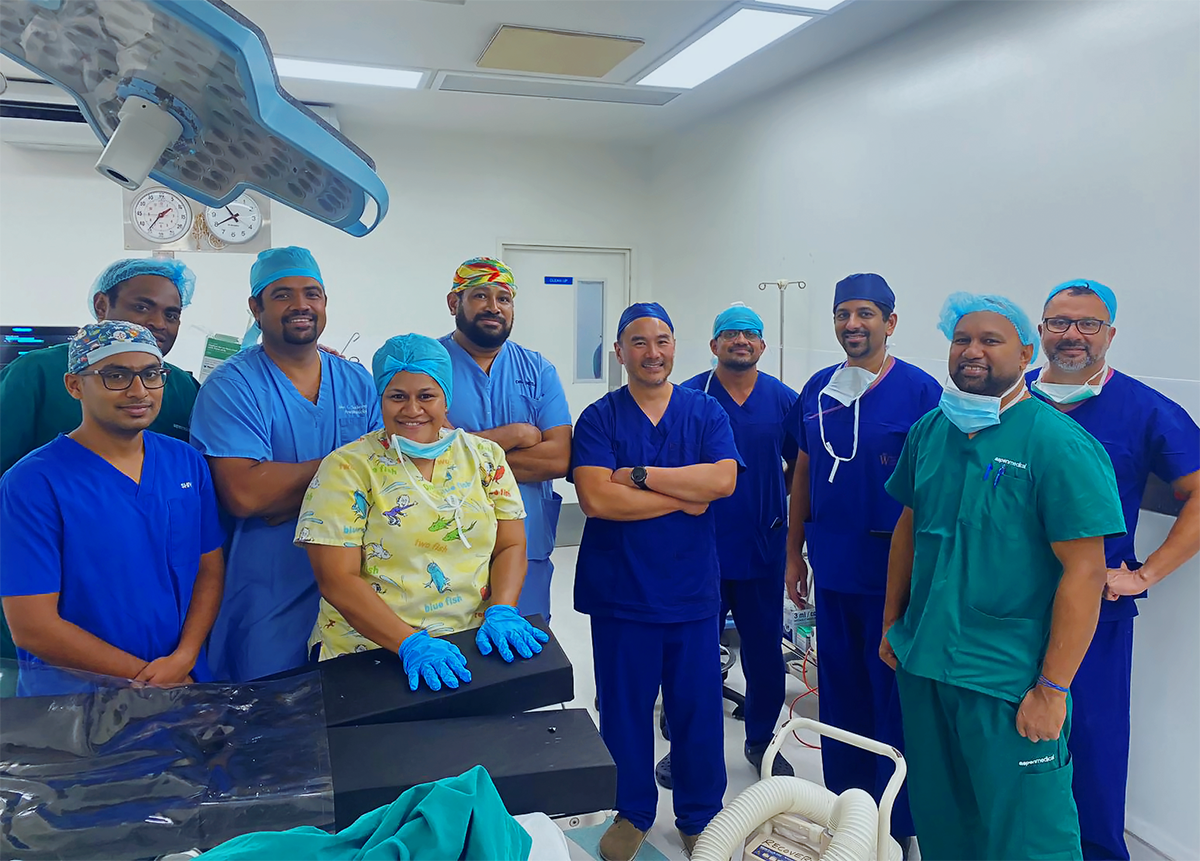
Interplast volunteer and nurse Denis checks in with Merewalesi before their surgery.
Complex cases and learning opportunities
This program was especially tough. Dr Buadromo and Dr Singh worked alongside Interplast volunteers on 5 complex neck and head cases. These procedures used advanced reconstructive techniques; some lasting over 10 hours.
Now 5 people had a better chance at a healthier, more comfortable life and 7 local surgeons and nurses have greater experience and ability to treat complex cases.
“The principle of involving the local surgeons in planning and executing complex reconstructive cases is the best way of teaching in real life.” Interplast team leader, Dr Michael Lo, said.
Interplast would like to acknowledge the hard work of our volunteer team: Dr Michael Lo, Dr Raminder Dhillon, Dr Inamul Rahiman and Denis Levin. We also thank the local surgical team at the Colonial War Memorial Hospital for their partnership, hospitality and participation.
If you want to support surgeons in the Pacific and Asia to provide life-changing care, donate to Interplast or learn more about sponsoring a scholarship.
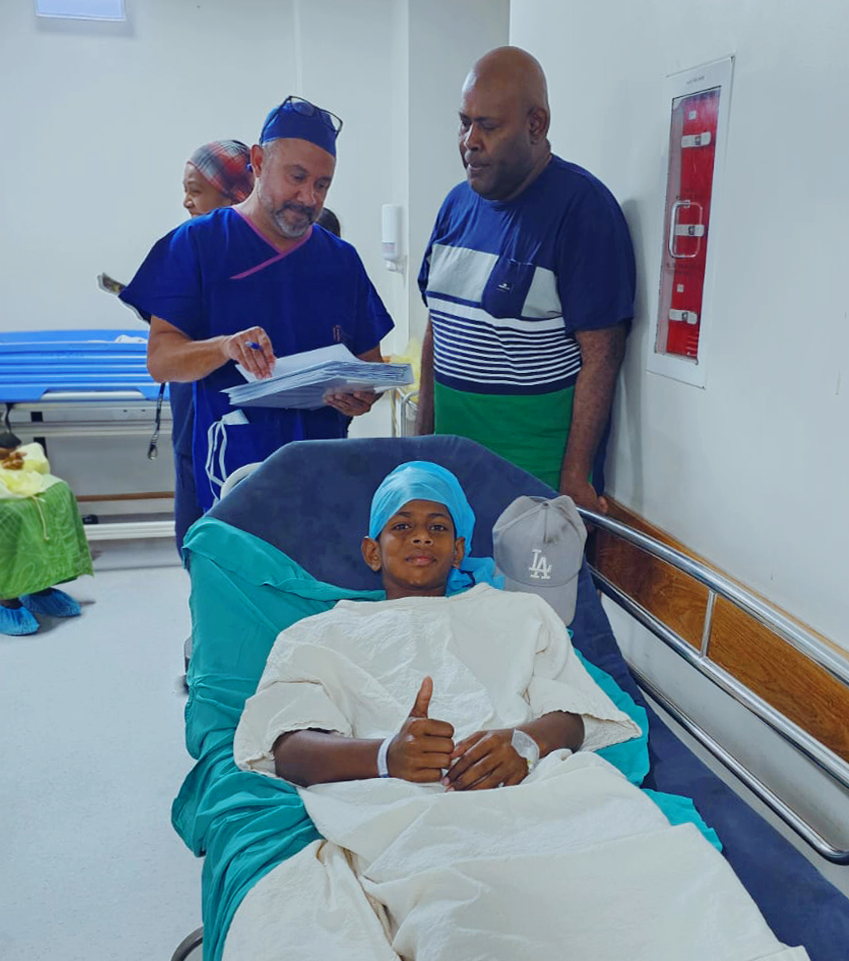
Denis speaks with Kalivati and his father before their surgery.
